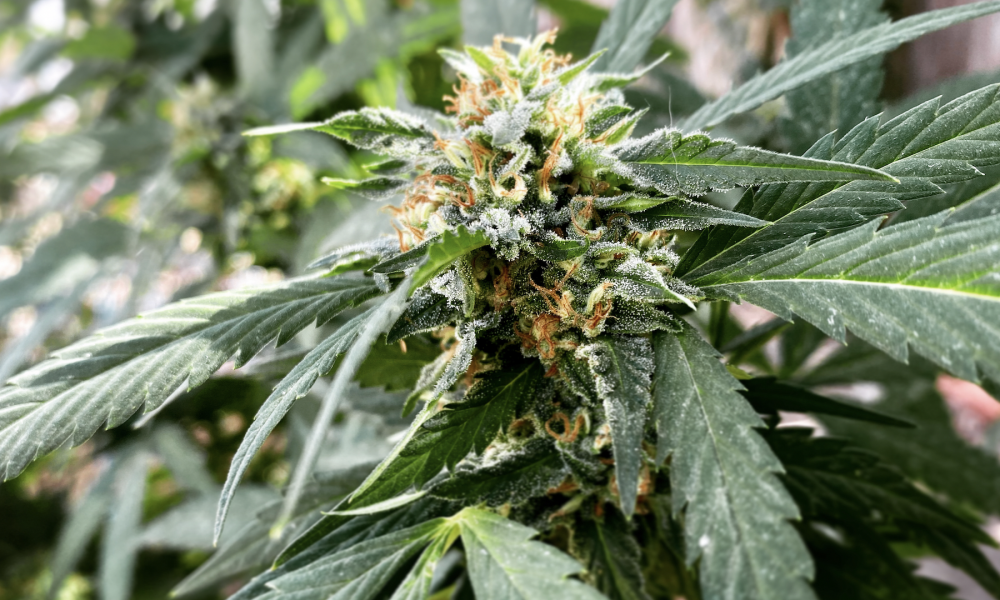Legislation to eventually allow Washington State marijuana companies to engage in interstate commerce passed out of a House committee on Tuesday. A companion bill on the Senate side cleared its own committee hurdle last month.
If the legislation is enacted, interstate marijuana trade would depend on a policy change at the federal level: either a law “to allow the interstate transfer of cannabis” between legal businesses or an opinion from the U.S. Department of Justice “allowing or tolerating” marijuana commerce across state lines, the bill says.
California and Oregon have already adopted changes similar to the Washington proposal. On the East Coast, New Jersey’s Senate president filed an interstate cannabis commerce bill last year.
“This bill attempts to mirror the efforts that are taking place in other recreational legal cannabis states by preparing for interlocal agreements and interstate commerce should the federal government change the rules,” the bill’s lead sponsor in the House, Rep. Sharon Wylie (D), said before Tuesday’s vote in the House Regulated Substances and Gaming Committee.
The panel approved the measure, HB 1159, on a 6–5 vote along party lines.
—
Marijuana Moment is tracking hundreds of cannabis, psychedelics and drug policy bills in state legislatures and Congress this year. Patreon supporters pledging at least $25/month get access to our interactive maps, charts and hearing calendar so they don’t miss any developments.![]()
Learn more about our marijuana bill tracker and become a supporter on Patreon to get access.
—
The panel’s ranking Republican member, Rep. Kelly Chambers, called the project “a big undertaking” and said there were still unanswered questions around how to coordinate interstate commerce with Washington’s licensing system.
Before the vote, lawmakers adopted an amendment to the bill from sponsor Wylie requiring that the state’s eventual rules for interstate commerce be consistent with existing “policies and programs to redress inequities that exist from past cannabis prohibition and drug enforcement laws.” It also requires regulators to provide notice of the effective date of the change to all marijuana businesses and license applicants once federal policies allow cross-border trade.
The panel rejected an amendment from Chambers that would have removed state limits on cultivators’ marijuana production once the change takes effect.
“This may very well be a good idea down the road, and it may be something that we add in the process of working it through the system,” said Wylie, who nevertheless voted against the amendment.
Wylie said the bill as it is lays the groundwork for state businesses to be competitive in a national marijuana market, though she acknowledged it may require further refinement both this session and in the future. “What we want to do is protect people that follow the rules,” she said, “and for our healthy businesses, we want them to stay competitive.”
Also at Tuesday’s hearing, the panel approved a bill, HB 1772, that would outlaw at the state level products that combine alcohol and THC. Federal alcohol regulators already disallow products that contain federally controlled substances.
The panel heard public testimony on another measure, HB 1822, to allow operators of short-term rentals such as AirBnbs to provide adult guests with small amounts of complimentary cannabis and alcohol products, although it did not take action on that bill.
Later this week the same panel is scheduled to vote on a separate bill that would allow adults in the state to grow marijuana for personal use at home. Washington is one of only a few states with legal marijuana where home cultivation remains prohibited, and it’s the only jurisdiction where the practice is a felony. But so far lawmakers have failed to pass a number of homegrow bills going as far back as 2015.
Washington’s legislative session is gearing up to be a busy one when it comes to drug policy. Earlier this year, lawmakers filed a revised bill to legalize psilocybin services for adults. A version of the proposal was introduced last year with far fewer cosponsors, and while that bill received a committee hearing, it did not ultimately advance.
Bills to promote social equity in the cannabis industry and provide employment protections for adults who use marijuana have also advanced through initial committee votes this session.
Separately, state lawmakers are reconsidering drug possession penalties and related issues this session.
Following a state Supreme Court decision in February 2021 that invalidated the state’s felony law against drug possession, lawmakers enacted a temporary criminalization policy that is set to expire on July 1. While possession is currently classified as a gross misdemeanor, some progressive lawmakers want the state to use the opportunity formally decriminalize.
Gov. Jay Inslee (D) has said he thinks lawmakers will settle on a bill that increases access to treatment and recovery while also maintaining criminal penalties for possession. “I am against the legalization of hard drugs,” he said. “We’ve got to have an adequate incentive for people to get into treatment.”
Schumer Meets With GOP Senators To Discuss Marijuana Legislation For New Congress
Read the full article here

